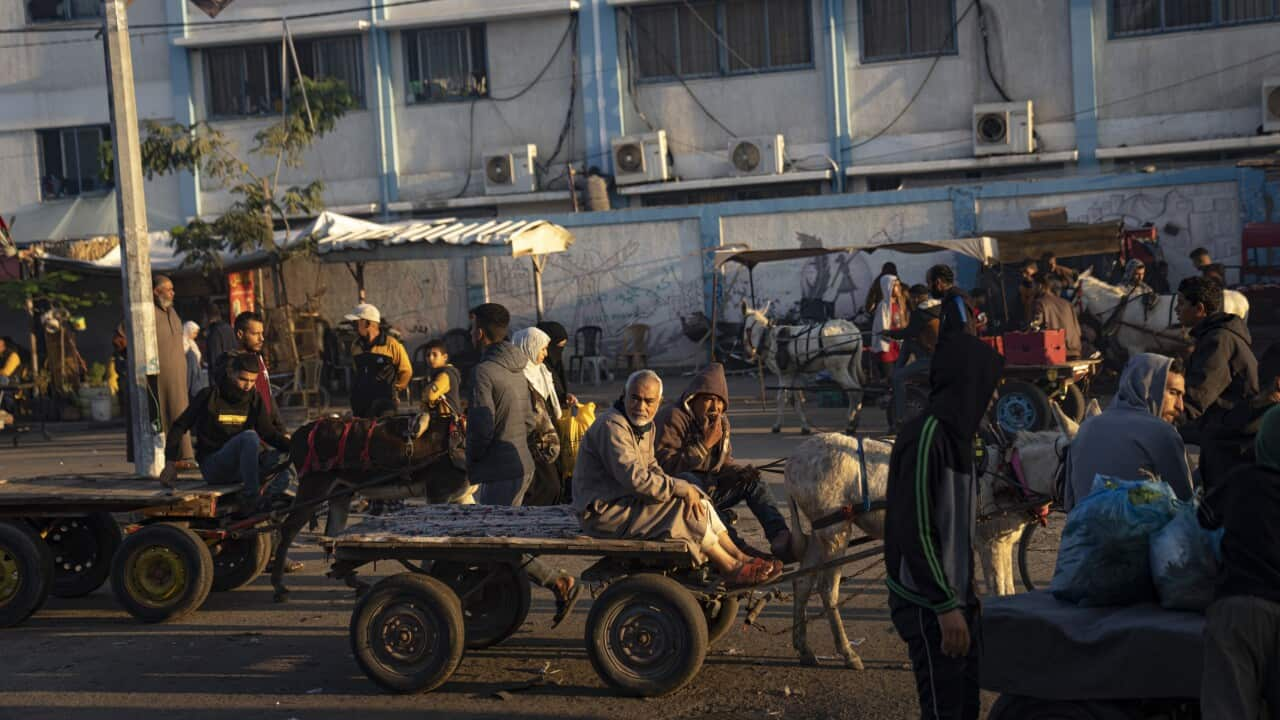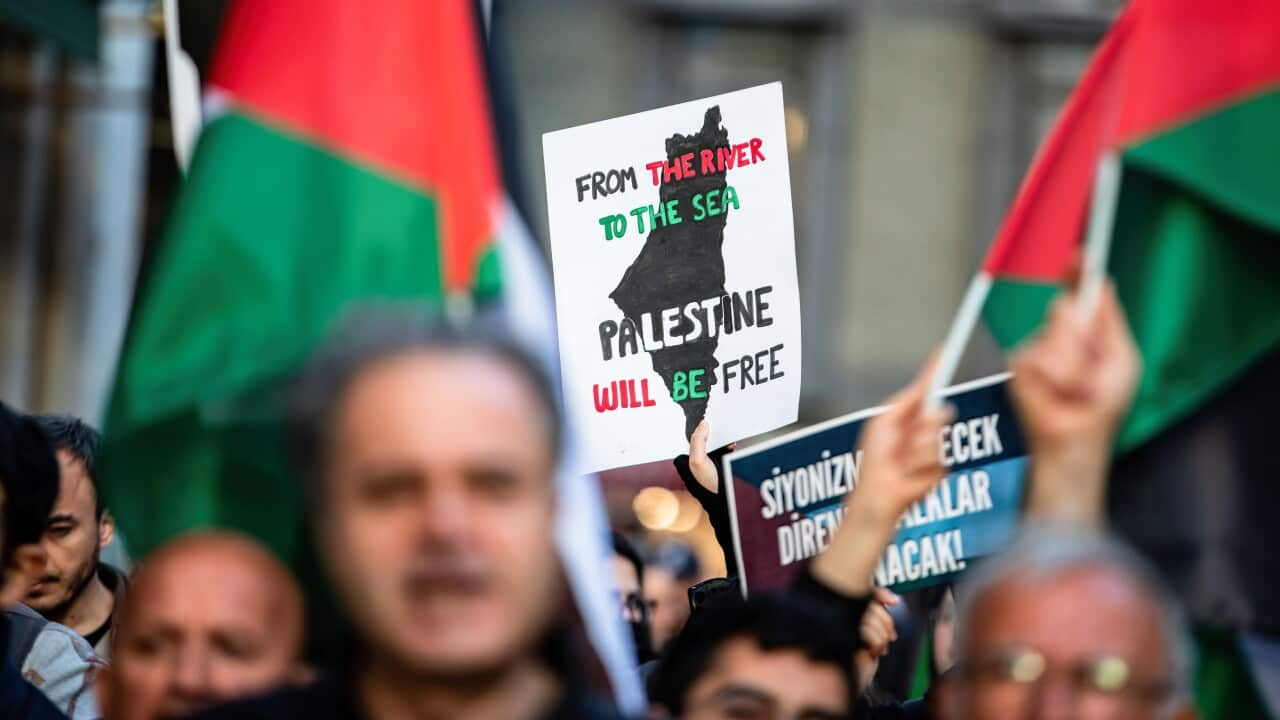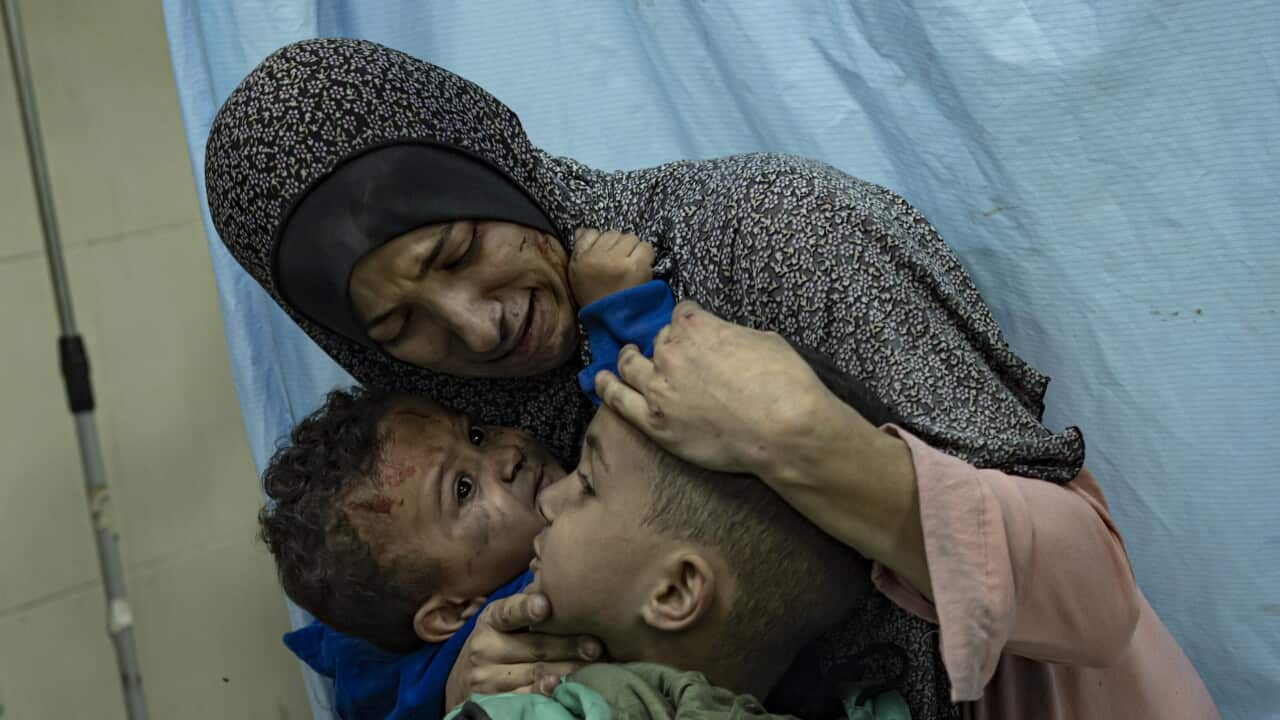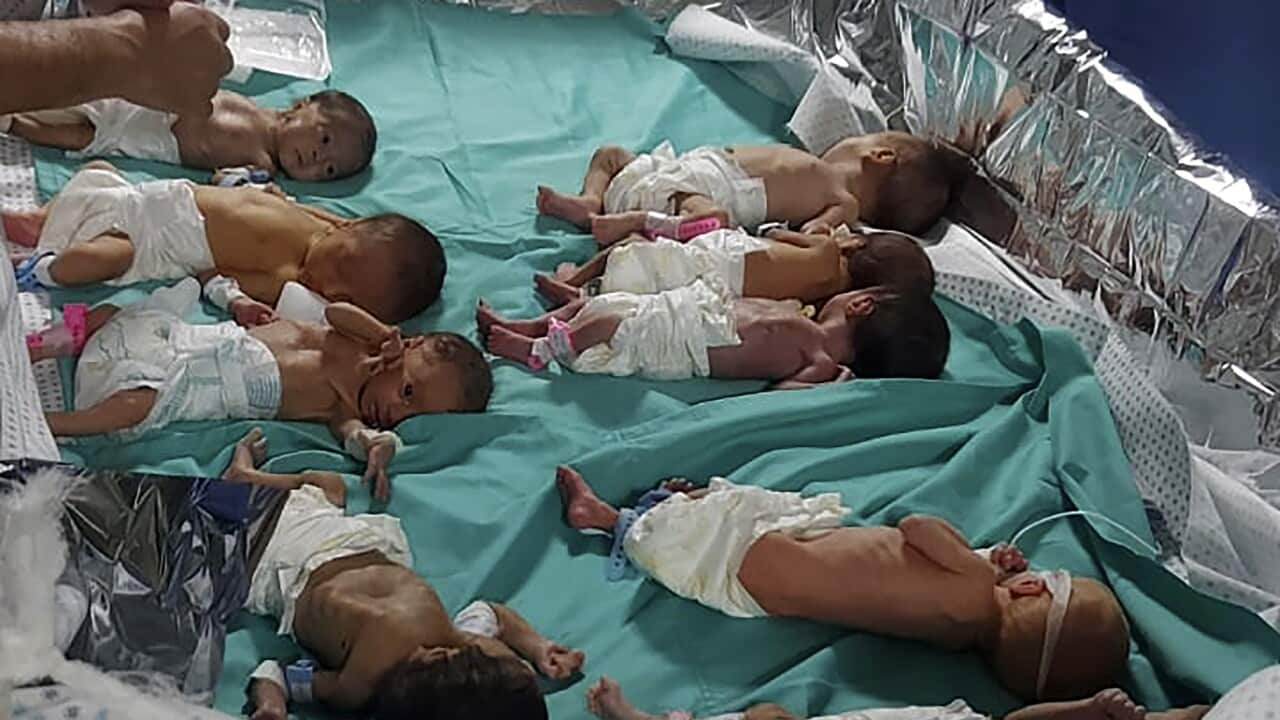Key Points
- Acute fuel shortages threaten aid deliveries and communications in Gaza.
- The amount of fuel will give "minimal" support for water, sewage and sanitary systems in Gaza to prevent pandemics, an Israeli official said.
- The decision came after a request from the United States government.
Israel issued a fresh warning to Palestinians in the southern city of Khan Younis to relocate west out of the line of fire and closer to humanitarian aid in the latest indication that it plans to attack Hamas in southern Gaza after subduing the north.
"We're asking people to relocate. I know it's not easy for many of them, but we don't want to see civilians caught up in the crossfire," Mark Regev, an aide to Israeli Prime Minister Benjamin Netanyahu, told MSNBC on Friday.
Such a move could compel hundreds of thousands of Palestinians who fled south from the Israeli assault on Gaza City to relocate again, along with residents of the southern city of Khan Younis, worsening a dire humanitarian crisis.
Khan Younis has a population of more than 400,000.
About 26 Palestinians, mostly children, were killed in an Israeli bombardment of the city early on Saturday, the Palestinian news agency WAFA said.
Israel vowed to annihilate the Hamas militant group that controls the Gaza Strip following a 7 October rampage into Israel in which its fighters killed 1,200 people and dragged 240 hostages into the enclave.

Palestinians line up for food during the ongoing Israeli bombardment of the Gaza Strip in Rafah. Source: AAP / Hatem Ali/AP
More than 12,000 Palestinians, have been killed in on Gaza, according to the health ministry in Hamas-controlled Gaza.
Many of those who have fled fear their displacement could become permanent.
Israel overnight Thursday dropped leaflets over eastern areas of Khan Younis telling people to evacuate to shelters, suggesting that military operations there are imminent.

Whole neighbourhoods have been flattened in air and artillery strikes in Gaza, with hundreds of thousands of people being forced to flee their homes. Source: AAP / Fatima Shbair/AP
"I'm pretty sure that they won't have to move again" if they move west, he continued. "We're asking them to move to an area where hopefully there will be tents and a field hospital."
Because the western areas are closer to the Rafah border crossing with Egypt, humanitarian aid could be brought in "as quickly as possible," he said.
Small amount of fuel to enter Gaza
Israel's war cabinet has agreed to allow 140,000 litres of fuel into Gaza every two days after a request from Washington, amid acute shortages that threatened , Israel and US officials said on Friday.
Israel imposed a strict blockade on all goods entering Hamas-controlled Gaza when it launched a military campaign in response to the militant group's 7 October rampage.
The significant escalation is the latest boiling point in a long-standing conflict between Israel and Hamas.
Israel has since agreed to allow in aid trucks after stringent inspections and a small amount of fuel was allowed in on Wednesday to keep United Nations Relief and Works Agency (UNRWA) aid delivery trucks moving.
An Israeli official who declined to be identified said two trucks a day would be allowed in to meet the UN's needs, but said the amount would give "minimal" support for water, sewage and sanitary systems in Gaza to prevent pandemics.
The official said the fuel amounted to roughly 2-4 per cent of the normal quantities of fuel that entered Gaza prior to 7 October.
A US State Department official said Israel had committed to allowing in 120,000 litres of fuel every 48 hours for UNRWA's trucks and other needs like desalinisation of water, sewage pumping, bakeries and hospitals in the south of Gaza.
An additional 20,000 litres every two days would be allowed in to power generators of telecoms company Paltel, which had warned of an imminent blackout of its cellphone network due to lack of fuel.
UN aid deliveries to Gaza were suspended on Friday due to shortages of fuel and a communications shutdown, deepening the misery of thousands of hungry and homeless Palestinians as Israeli troops battled Hamas militants in the enclave.
The agreement to deliver the fuel drew strong opposition from some members of 's right-wing coalition but it followed increasing international alarm at the dire humanitarian situation in Gaza.
The United Nations' World Food Programme said civilians faced the "immediate possibility of starvation" due to the lack of food supplies.
With the war about to enter its seventh week, there was no sign of any let-up despite international calls for a ceasefire or at least for humanitarian pauses.
Hamas is a Palestinian military and political group, which has gained power in the Gaza Strip since winning legislative elections there in 2006. Its stated aim is to establish a Palestinian state, while refusing to recognise Israel's right to exist.
Hamas, in its entirety, is designated as a terrorist organisation by countries including Australia, Canada, the United Kingdom and the United States. New Zealand and Paraguay list only its military wing as a terrorist group.
In 2018, the United Nations General Assembly voted against a resolution condemning Hamas in its entirety as a terrorist organisation.
Earlier, Israel said its troops had found a tunnel shaft used by in the north of the Gaza Strip.
The hospital, packed with patients and displaced people and struggling to keep operating, has become a major focus of global concern.
Israel says Hamas has stored weapons and ammunition and is holding hostages in a network of tunnels under hospitals like al-Shifa, using patients and people taking shelter there as human shields. Hamas denies this.












